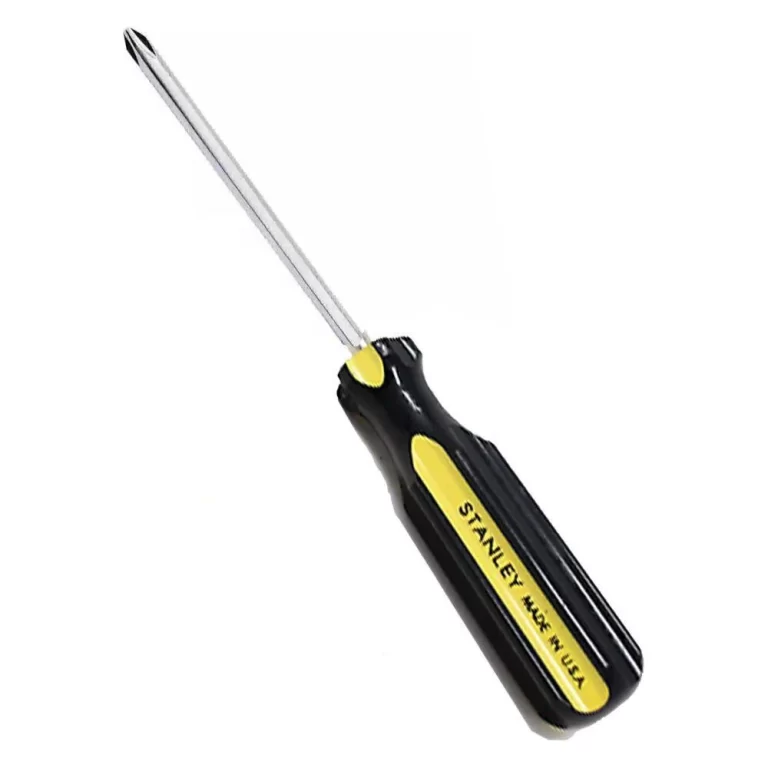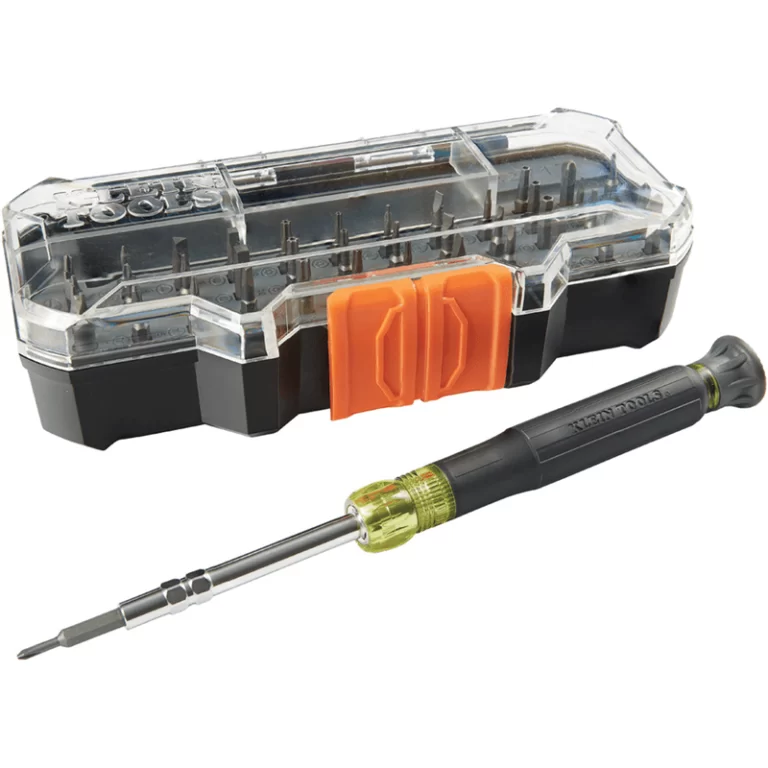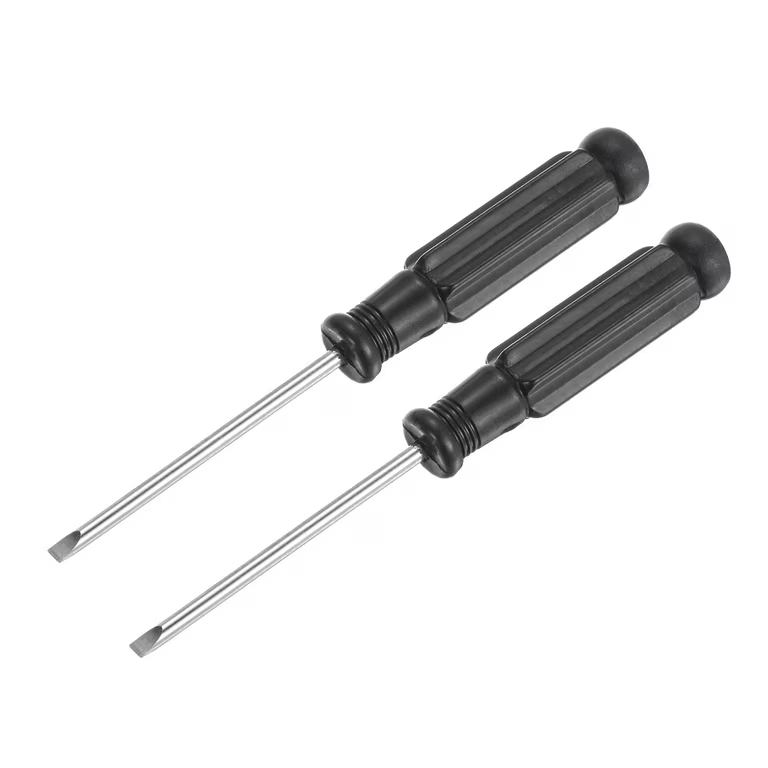
Maximizing Precision: Choosing Small Screwdriver
The Importance of the Right Screwdriver Size
Selecting the right screwdriver size is crucial for any precision task. Using a small screwdriver that fits properly prevents damage to both the screw and the tool. It ensures the force you apply is direct and effective. A mismatched screwdriver can strip the screw head, making it harder to turn or remove. This is particularly vital in delicate operations such as electronics repair, where precision is key.
A small screwdriver that is too large will not fit into the slot or recess. This leads to slippage, which can cause injury or damage the item you’re working on. On the other hand, a screwdriver too small can’t transmit enough torque, making your task harder and less efficient. The perfect size allows for better control and accuracy of your work.
Properly sized small screwdrivers are essential for professionals and hobbyists alike. They ensure safety, safeguard the integrity of parts, and impact project outcomes positively. Consistently choosing the correct size can also prolong the life of both your tools and the items they’re used on. Keep this in mind next time you reach for a small screwdriver for your DIY or professional project.
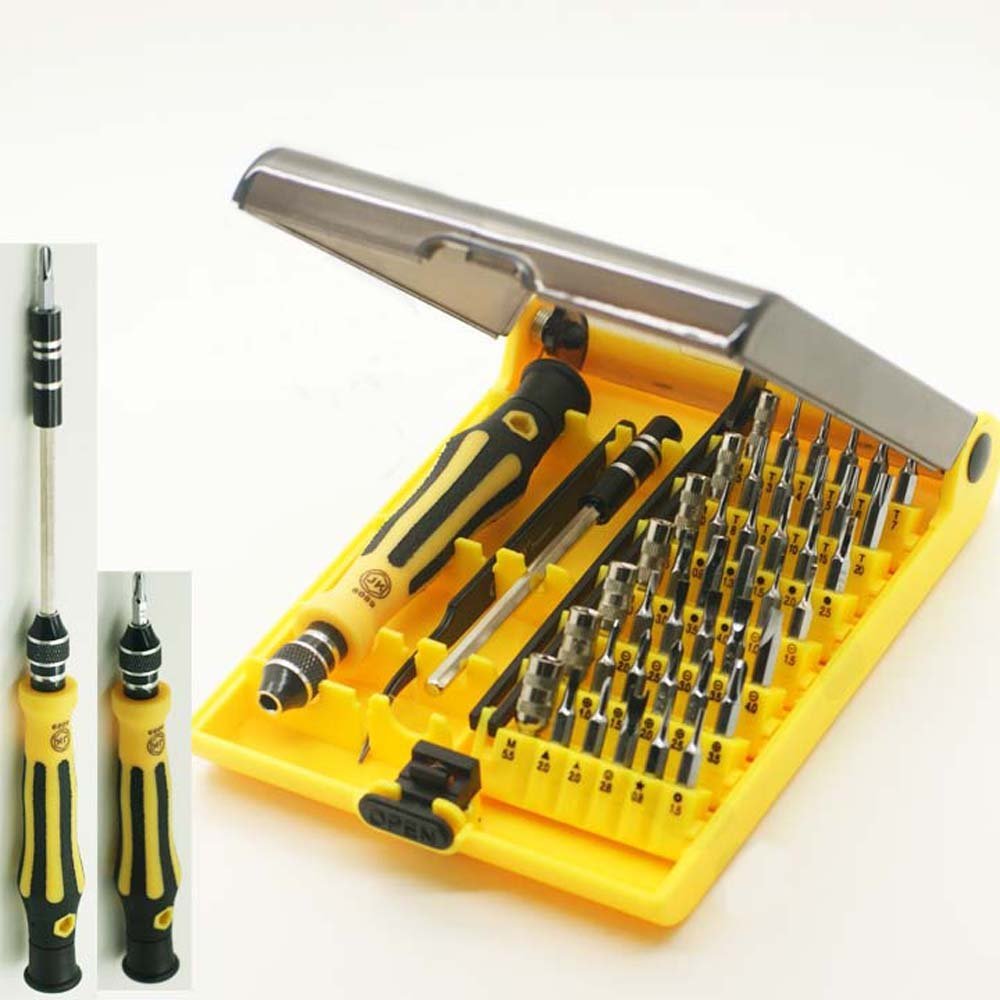
Types of Small Screwdrivers
When it comes to small screwdrivers, variety is key. Each type serves a unique purpose. Here’s a brief overview of the most common types you might encounter:
- Flathead Screwdrivers: These have a single flat tip. They fit into a single-slot screw. They’re versatile and widely used.
- Phillips Screwdrivers: Known for their cross-shaped tip, they engage screws with a ‘+’ shaped recess. They provide better torque than flatheads.
- Torx Screwdrivers: These have a star-shaped tip. They’re often used for electronics due to their precise engagement with Torx screws.
- Precision Screwdrivers: These are smaller in size. They’re designed for tasks that require high accuracy, like watch repairs.
- Jeweler’s Screwdrivers: These are very small. Jewelers use them for delicate tasks, such as repairing eyeglasses or intricate jewelry pieces.
- Hex Screwdrivers: Also called Allen wrenches. They have a hexagonal shape and fit into hex-shaped screws, common in furniture assembly.
Choose a small screwdriver based on the task at hand. Ensure it matches the screw head perfectly to avoid damage and increase efficiency. Keep a set of different types handy. This will prepare you for a range of projects that demand precision.
Materials and Durability: What to Consider
When selecting a small screwdriver, materials and durability are key factors. A good screwdriver should last for years. Consider these aspects:
- Metal Quality: The tip of a screwdriver often dictates its durability. Look for high-quality steel, such as chrome vanadium or stainless steel. These materials resist wear and corrosion.
- Handle Materials: Handles should provide comfort and grip. Materials often include rubber, plastic, or metal. Rubber grips absorb shock and reduce hand fatigue.
- Set Material: If buying a set, check the case material. A sturdy case protects your screwdrivers and keeps them organized.
- Corrosion Resistance: Look for screwdrivers with anti-corrosion coatings. This extends their life and maintains their precision.
- Manufacturing Process: Forged screwdrivers are typically stronger than those that are stamped. A well-forged tip retains its shape despite heavy use.
Durability affects performance and value for money. Invest in quality materials and consider the longevity when choosing your small screwdriver.
Screwdriver Tips: Slotted vs. Phillips vs. Torx
When it comes to choosing a small screwdriver, the tip is just as important as the size. The right tip ensures efficient and safe engagement with the screw head. Here we compare Slotted, Phillips, and Torx tips.
- Slotted Screwdrivers have a simple flat blade that fits into a single slot on the screw head. They are common and easy to use. However, they can slip if not aligned properly.
- Phillips Screwdrivers have a cross-shaped tip, designed to fit into screws with a ‘+’ recess. They provide a better grip and reduce the chance of stripping the screw head compared to slotted screwdrivers.
- Torx Screwdrivers, with their star-shaped tip, are ideal for high-torque applications. The design helps in preventing cam-out, where the screwdriver slips out of the screw head unexpectedly.
When selecting a small screwdriver, it’s important to consider the job at hand. Slotted screwdrivers work well for simple, less precise tasks. Phillips screwdrivers are better for tasks that need more torque and less slippage. For electronics or tasks requiring maximum precision and torque, Torx screwdrivers are the go-to choice.
Remember, using the wrong tip can damage both the screw and the tool. Always match the tip to the screw head’s shape for the best performance and tool longevity. Keep a variety of each type on hand, so you’re prepared for any task. Choose a small screwdriver set with all three tip types to cover different needs.
Handling and Ergonomics
When choosing a small screwdriver, handling and ergonomics play a pivotal role for precision work. A tool that’s awkward to handle can lead to errors and discomfort during long periods of use. Below are factors to consider to ensure the best experience:
- Comfortable Grip: Select small screwdrivers with ergonomic handles. These conform to your hand’s natural contours. Good grip reduces strain and enhances control.
- Handle Size: The handle should be proportional to the size of the screwdriver. A proper fit increases leverage and precision.
- Non-slip Features: Look for handles with non-slip textures. These improve stability, especially when working with greasy or wet hands.
- Weight Balance: A well-balanced screwdriver feels right in the hand. It allows for better maneuverability and less fatigue.
- Rotation Cap: Some precision small screwdrivers have rotation caps. These caps allow you to turn the screwdriver with your fingertips. It offers extra precision for delicate tasks.
Ergonomically designed screwdrivers may cost more, but they are worth the investment. They make tasks easier and reduce the risk of hand injuries. Aim for small screwdrivers that feel like an extension of your hand. That is when you know you’ve found the right tool for the job.
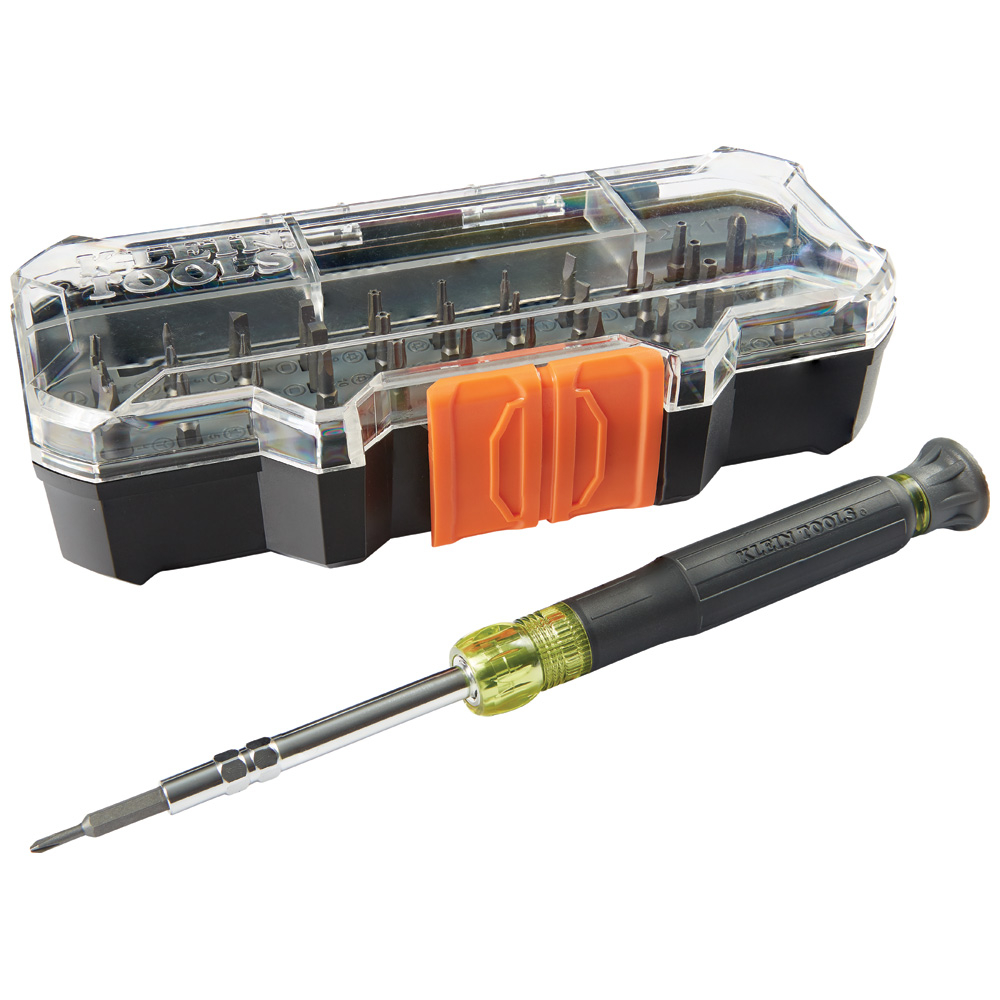
Specialty Small Screwdrivers for Electronics
Electronics often require exact precision and specialized tools. For these tasks, specialty small screwdrivers are indispensable. Here are key features to look for in these precision tools:
- Anti-Static Properties: Electronics are sensitive to static electricity. Choose screwdrivers with anti-static handles to protect delicate components.
- Magnetized Tips: This feature helps keep tiny screws attached to the screwdriver. It is especially useful when working in cramped spaces.
- Swivel Tops: These allow for easier rotation and better control. They work great when making many turns.
- Size Range: Often, electronic devices have various screw sizes. Having screwdrivers that range from very small to slightly larger is beneficial.
- High-Precision Design: Look for screwdrivers with precisely machined tips. They fit better and reduce the risk of damaging the screw heads.
When working with electronics, a small screwdriver of the right type is critical. It prevents damage and makes the job smoother. Keep an assortment of specialty screwdrivers on hand to tackle any electronic project with confidence.

Maintenance and Care for Longevity
Taking care of your small screwdriver set is crucial for ensuring its longevity and precision. Here’s how you can maintain your screwdrivers effectively:
- Clean Regularly: After each use, wipe your screwdriver’s tip and handle with a clean cloth to remove debris and oils.
- Store Properly: Keep screwdrivers in a case or holder. This prevents them from getting lost and protects the tips from damage.
- Avoid Moisture: Store your tools in a dry place. Moisture can lead to rust and corrosion, which degrade the screwdriver’s quality.
- Don’t Misuse: Use your small screwdriver for its intended purpose. Avoid using it as a prying tool or a chisel which can damage the tip.
- Regular Inspection: Check your screwdrivers for wear and tear. Look for bent tips and worn grips which can affect performance.
- Handle With Care: Avoid dropping your screwdrivers. Impacts can damage the handle and the tip, affecting precision.
By following these simple tips, you can ensure your small screwdrivers operate at peak performance for years to come. Remember, well-maintained tools are safer and more effective to use.
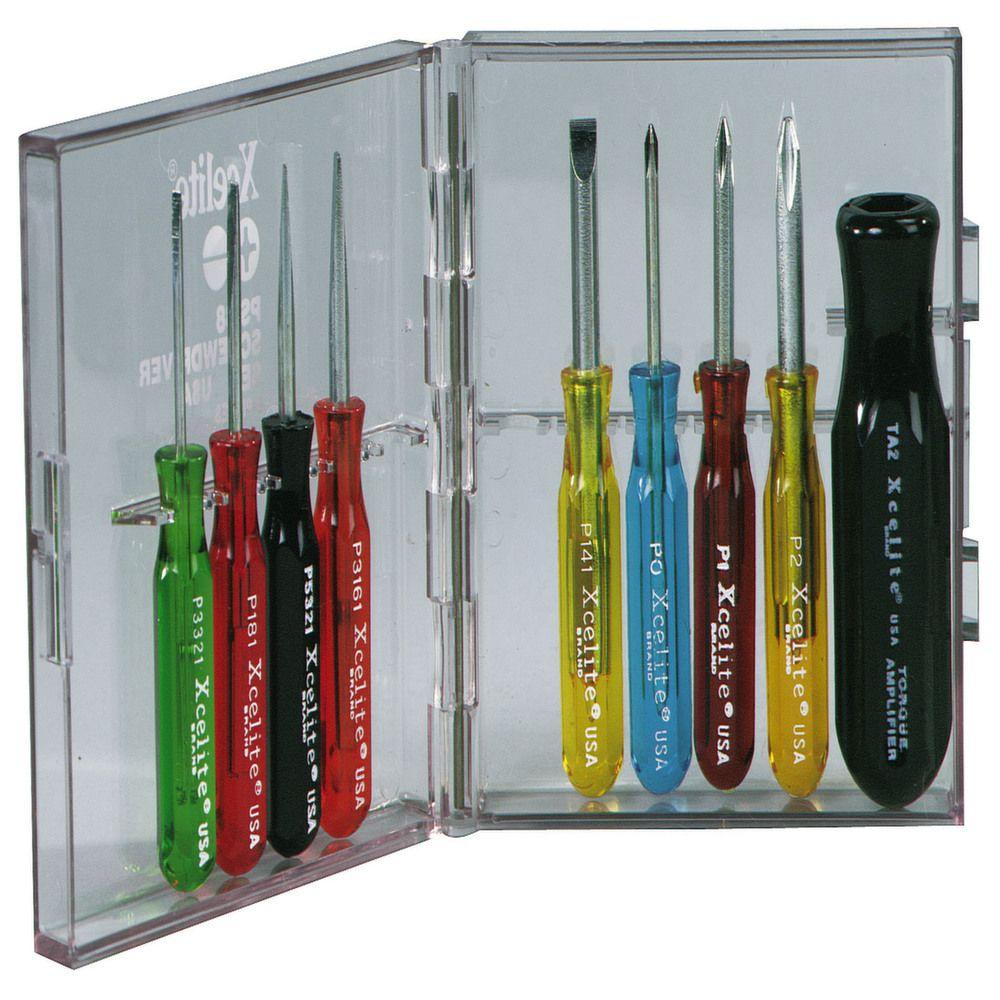
Where to Buy Quality Small Screwdrivers
When you’re looking to purchase a small screwdriver or set, it’s essential to choose a reputable seller to ensure quality and durability. Here are some tips on where to find the best tool for your needs:
- Hardware Stores: Local hardware stores often carry a range of hand tools. They provide the advantage of seeing the tool before buying. Staff can also offer advice.
- Online Marketplaces: Websites like Amazon and eBay have a wide selection of tools. They often feature customer reviews that can guide your choice.
- Specialty Tool Shops: For high-precision tasks, like electronics, seek out specialty tool shops. They stock items that may not be found in general stores.
- Direct from Manufacturers: Buying directly from the tool manufacturer can ensure authenticity and high quality. Many offer online stores.
- Professional Tool Suppliers: Suppliers who cater to trade professionals typically sell high-grade tools. They’re ideal for those who use screwdrivers regularly.
- Estate Sales and Auctions: Occasionally, you can find quality used tools at estate sales. Inspect tools thoroughly before purchasing.
Remember to compare prices, read reviews, and check the return policy. Always keep your specific needs and the outlined considerations in mind when making your purchase. Quality small screwdrivers are an investment in precision work that lasts.
